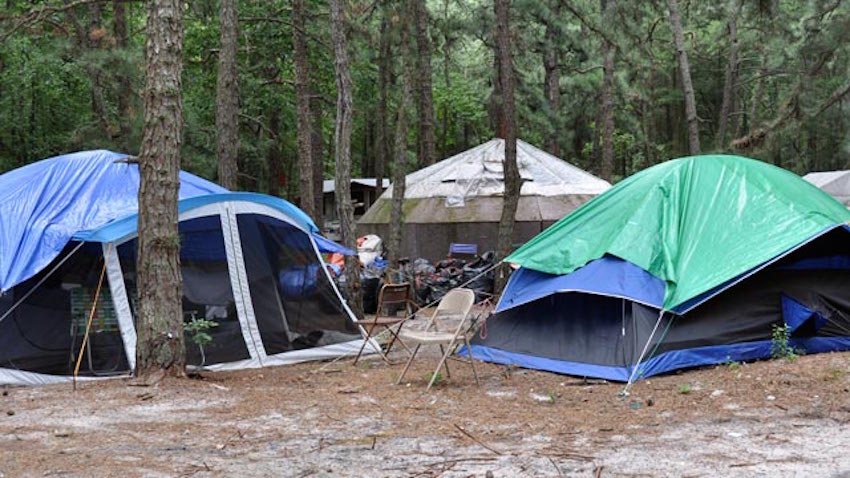In an effort to control a growing homeless population that has become increasingly disruptive for Seattle’s commuters and residents, Mayor Ed Murray is urging the development and legalisation of three tent cities. Such areas would provide the homeless with shelter while keeping them away from heavily traveled walkways and public spaces.
He says the change, which would be overseen not by the city but by social service organizations, would make legal something that’s drawn controversy in the area. It would keep the homeless safe while also allowing residents and commuters to travel without dodging people in sleeping bags or being subjected to the stomach-churning odors of urine and fecal matter.
“It bothers me because it’s very sad and unfortunate,” said commuter Margo Dannemiller. Of the homeless she sees daily, she added, “They’re lighting fires in there. They’re urinating and defecating. It’s unpleasant, but mostly I just wish they had another option.”
Many share Dannemiller’s thoughs, seeking safer and more hygienic standards for the public — both homeless and non-homeless alike.
From our partners:
Amid controversy, Seattle mayor says tent cities beneficial
“In recent months, more illegal encampments have popped up on our streets and sidewalks than ever before and the need for alternative spaces has grown immensely,” Murray wrote. A one-night estimate, for example, found that over 3,000 people were living on the streets of the city and its surrounding areas.
However, opponents of the proposed idea suggest that the idea won’t necessarily keep people safe, but rather likely cause the problem to escalate. Others, who have suggested allowing the homeless to stay in community centers, have met resistance. Of this idea, Murray says that such centers should continue to focus on the needs of children and senior citizens; tent cities should be specifically set aside to manage the needs of homeless people.
“I’ve heard from our federal partners that encampments are not a sustainable solution to this issue,” Murray expressed. His words are thought to be a reference to the United States Interagency Council on Homelessness (USICH), which does not favour establishment of tent cities.
They mayor’s goal, as he states in a letter to members of his Emergency Task Force on Unsheltered Homelessness, is “to make a limited number of unused, vacant lots on private and public land in nonresidential areas available for encampments, not including city parks.”
“Permitted encampments are not, in my view, a long-term strategy to end homelessness,” the mayor said at a news conference. “But organised encampments have less impact on our neighbourhoods and provide a safer environment than what we see on our streets today.” His proposal calls for three new tent sites which would be set up within a half-mile of a transit stop. Each site would be a minimum of one mile from the other and run by social service groups who would be issued 12-month permits.
Other areas have legalized such encampments, making it seem likely that Murray will succeed in his Seattle endeavors.
For example, in King County, Washington, legislation allowing tent encampments to operate for another 10 years was recently approved.
From Nevada to New Jersey, tent cities are common
Tent cities are commonplace and on the rise throughout the nation.
According to the National Coalition for the Homeless, almost 61 percent of local and state homeless coalitions have observed a spike in homelessness since 2007 when the foreclosure crisis began. They maintain that an unstable economy has spurred the increase in tent cities since then, with many popping up everywhere from Washington to Georgia.
“What you’re seeing is encampments that I haven’t seen since the 80s,” said Paul Boden, executive director of the Western Regional Advocacy Project.
In Nevada, tent cities often develop once emergency shelters and other similar organisations close for the winter. In many instances, hundreds of people live in such communities, and the tents are typically no more than one foot apart from each other in dirt lots.
In New Jersey, one tent city in the town of Lakewood was the subject of controversy for years. Recently shut down by officials who have promised to provide its residents with temporary housing, it was often eyed as a safety hazard.
Lakewood’s deputy mayor, Albert Akerman, said the closing of the tent area was properly handled.
It’s “what we in Lakewood have wanted all along: the official closure date for Tent City with the closing done the right way, by helping these people get housed in a fair and compassionate way.”
This feature originally appeared in Natural News.



















